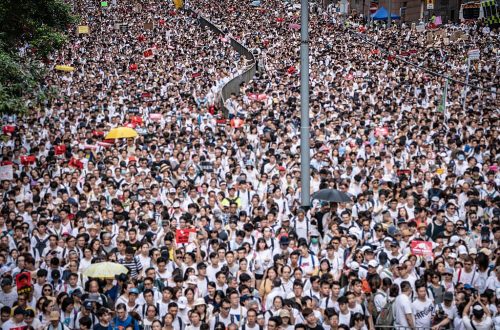One of the main challenges we’ll face during the Trump administration is filtering out the distracting noise (from all sides) and focusing on the issues that matter.
So while many Trump opponents denounced his Inaugural address as “dark” and “dystopian,” it’s important to recognize that a lot of what he said spoke directly to the anger (much of it justified) of many of his working-class supporters.
Given 20th century American history, it’s reasonable to be troubled by Trump’s invocation of the phrase “America First.” And it’s hard to believe that whoever drafted the speech for him was unaware of that history.
But writing at The Week, Ryan Cooper made an important point:
To my jaundiced left-wing ears, Trump’s evisceration of the moneyed elite rang uncomfortably true. He lamented the very real fact that the Washington area (especially the suburbs of northern Virginia) has become incredibly rich while de-industrialization has devastated vast swathes of the hinterlands. “Washington flourished, but the people did not share in its wealth. Politicians prospered, but the jobs left and the factories closed. The establishment protected itself, but not the citizens of the country.” While this is an unfair reading of the entirety of the Obama years, for a huge fraction of the country — beset by outsourcing, foreclosure, opioid addiction, falling homeownership, and stagnant or declining wages — it’s also a lived reality.
These are real problems, and despite his borderline-apocalyptic rhetoric, Trump is at least theoretically right to skewer America’s past leaders for failing to solve them.
However, there is precisely zero sign that America’s 45th president is going to do anything to make good on his fiercely populist promises.
So, for example, when Trump says, “We will follow two simple rules; buy American and hire American,” it’s fair to remind people that as a businessman he has routinely and serenely ignored these two simple rules. And it’s fair to ask if he will support a bill introduced by Democratic Senator Sherrod Brown to apply “Buy American” rules to all taxpayer-funded infrastructure and public works projects.
.@realDonaldTrump promises #buyamerican #hireamerican. Read more abt Sherrod's bill: https://t.co/QsaurDJJNy pic.twitter.com/qP0RL4P2v3
— Sherrod Brown (@SenSherrodBrown) January 20, 2017
When Trump contrasts the triumphs of the self-protecting establishment with the “struggling families all across our land,” it’s important to remember that he has named people like Steve Mnuchin and Andrew Puzder to his cabinet.
And when one of Trump’s first actions as president makes it somewhat harder for struggling families to become homeowners, it’s important to let people know.
Successfully opposing Trump won’t be achieved through self-righteous denunciations and personal insults. Rather it will be through reminding ordinary people (including those who voted for him) of the almost-certain gap between his promises and the policies that he is likely to embrace.


